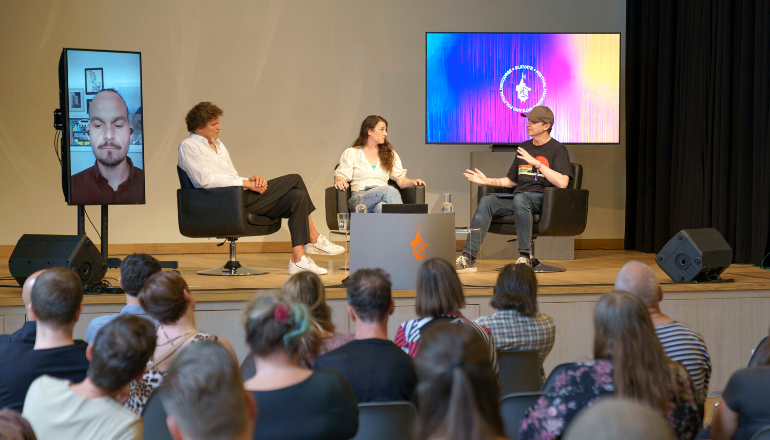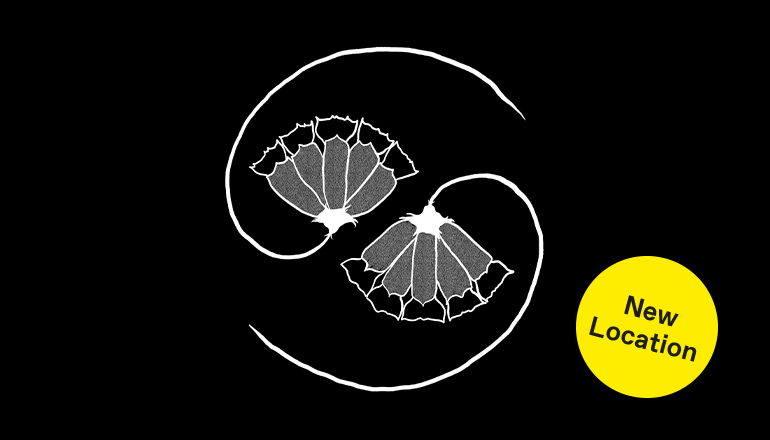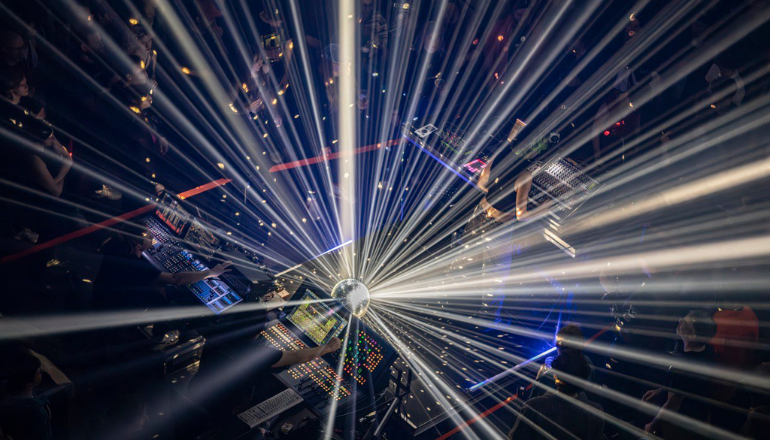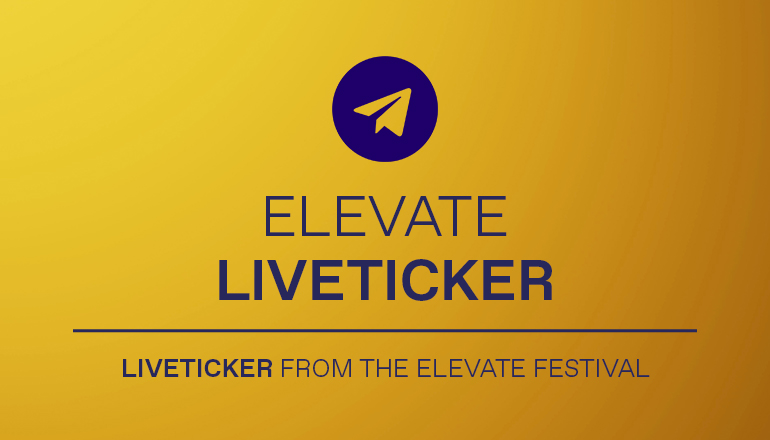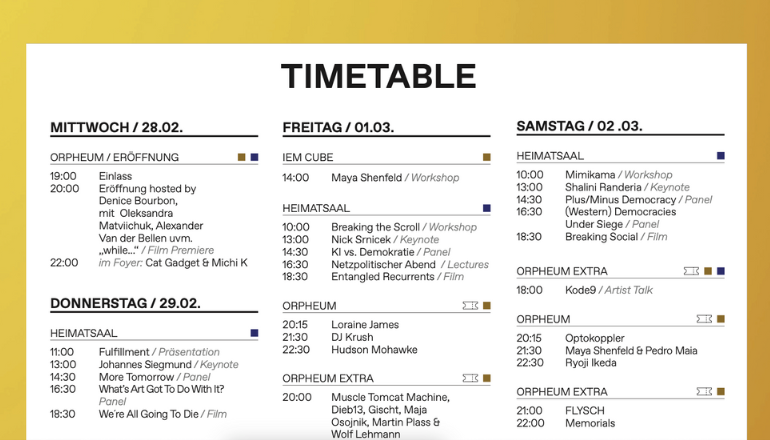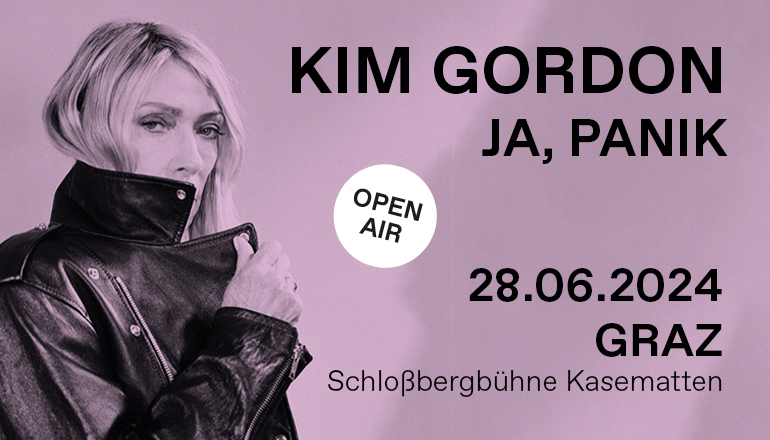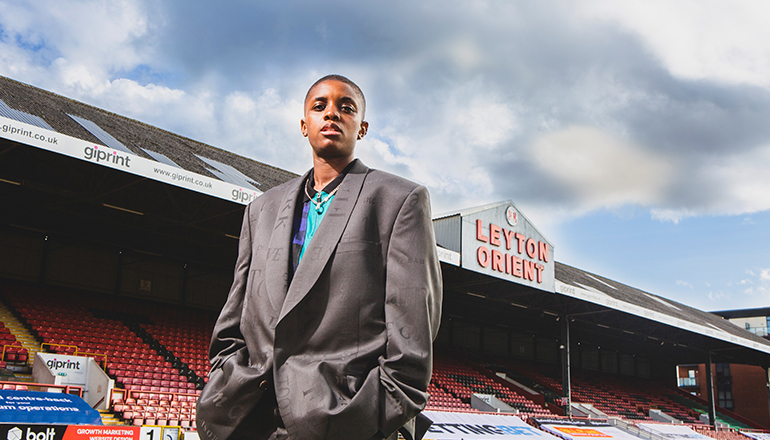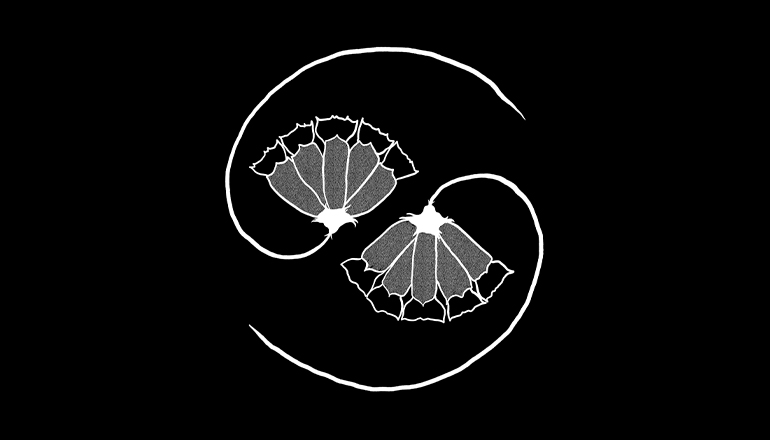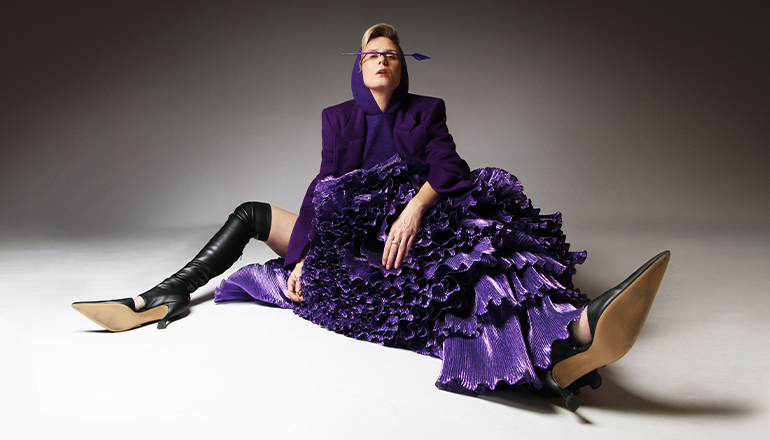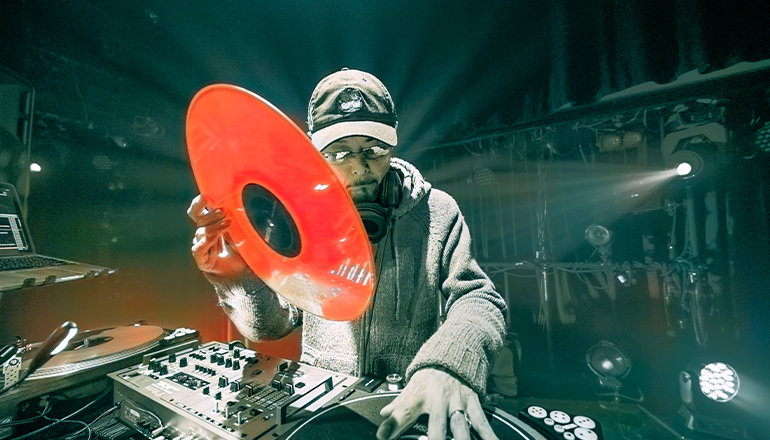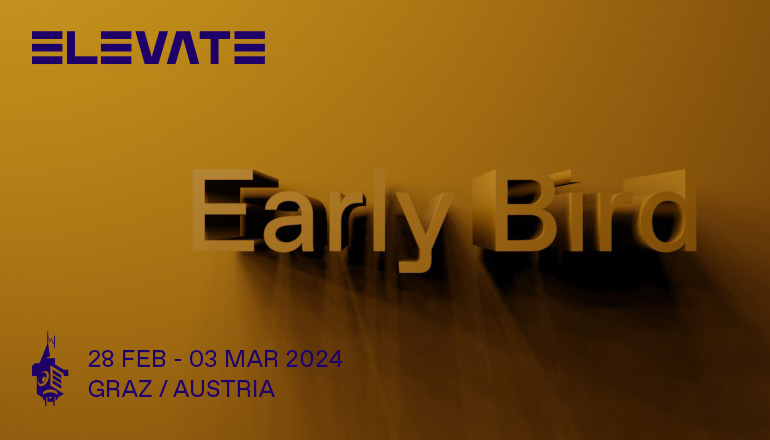Elevate Discourse Guide
Wednesday: Suggestions for our (future) coexistence
The Elevate Festival will be opened on Wednesday in the large theatre hall of the Graz Orpheum by the bestselling author Sibylle Berg. With her books and plays, she is now one of the best-known contemporary writers and dramaturges in the German-speaking world. The German-Swiss author, who received the "Swiss Grand Prix Literature" in 2020 for her complete works, prefers to create dystopian future worlds in her novels, describing a human existence in a bleak and absurd neoliberal tomorrow in which capitalism seems to have become without alternative. Apart from her prose, the essayist and columnist also analyses acute socio-political issues, but at the same time provides suggestions for our future coexistence.
Thursday: Activism, identities and global North-South relations
Starting on Thursday, the Heimatsaal in the Volkskundemuseum Graz welcomes discussants and visitors from near and far to three diverse days of discourse.
The introduction to the first day of the programme will be given by Elevate Discourse curator and psychologist Irina Nalis with a look at social and individual processes of change. The keynote of the day will be given by political scientist, sociologist and cultural editor Knut Cordsen, who will give a historical classification of activism today and show what activists can learn from history for the future. In the following panel discussion, climate activist and author Lena Schilling, art and cultural theorist Jörg Scheller and social scientist, DJ and promoter Romualdo Ramos will delve deeper into the present of social movements. Together with moderator Daniel Landau, co-organiser of the #YesWeCare sea of lights, they reflect on generational conflicts, group identities and privileges and ask: How much common ground does it actually take for the common cause?
The second panel of the day is about missed opportunities and blind spots between the global North and South. The status quo of the debate will be discussed by Middle East expert and Bachmann Prize winner Ronya Othmann, political advisor and sociologist Kenan Güngör and migration researcher Judith Kohlenberger, an expert on refugee migration and integration. The panel discussion will be moderated by Julia Herrnböck, editor at the investigative magazine Dossier and Vice President of Reporters Without Borders. The film "Nasrin" by director Jeff Kaufman, a portrait of the Iranian human rights activist and political prisoner Nasrin Sotoudeh, offers an impressive conclusion to the evening.
Friday: Digital Work, Technologies and Fundamental Rights
Friday begins with a workshop by the artist collective KairUs. In their installation "Suspicious Behaviour", they turn visitors to the Heimatsaal into clickworkers and digital day labourers. After the work is done, the celebrated science fiction author and digital rights activist Cory Doctorow will deliver a fitting keynote address. In his latest book, he analyses the monopoly position of the big internet platforms, describes how they created insurmountable obstacles to competition and exploitative working conditions - and calls on the creative class to organise against the power of the big tech companies.
A similar topic will be discussed in the next panel: Eliška Pírková, human rights lawyer and defender of digital rights, Sylke Gruhnwald, journalist and co-founder of Lobbywatch.ch, and Michael Bossetta, who researches the influence of social media on politics, will explore the question of what impact digital technologies have on democracy and freedom of expression and to what extent the right to freedom of expression is compatible with digital regulation. The discussion will be moderated by investigative journalist Julia Herrnböck.
Afterwards, Elevate will host the Net Policy Evening for the second time, this time with Johanna Pirker, Stefan Auer, Daniel Lohninger, Linda Kronman and Andreas Zingerle from KairUs and moderator Reni Hofmüller. The film screening of the afro-futuristic science fiction punk musical "Neptune Frost" by Anisia Uzeyman and Saul Williams will be the highlight of the evening.
Saturday: Local participation and global power politics
On Saturday, the new eParticipation tool for migrants in Graz will be presented in cooperation with the Migrant Advisory Board of the City of Graz, mitgestalten Participation Office and Südwind.
The next panel is also about participation: the climate journalist Andreas Sator deals with the expansion of renewable energy sources in Austria and the existing alliances between various actors from politics, civil society, NGOs, but also farmers, hunters and alpinists. The journalist also shows where in the country there are sometimes unusual to unholy alliances against such construction projects.
Also presenting: Florian Maringer, political advisor on climate and energy issues, the solar entrepreneur Cornelia Daniel, Dieter Thyr, Head of the Department of Energy Technology and Climate Protection of the Province of Styria and Christian Metschina, Head of the Department of Energy, Climate and Bioresources of the Styrian Chamber of Agriculture.
The concluding panel discussion looks at the darker sides of power and geopolitics. The philosopher Lisz Hirn, author of the book "Does Politics Evil?", will discuss with the former ORF correspondent Raimund Löw, who has already reported from the political power centres in Moscow, Beijing, Washington and Brussels. The panel will be complemented and moderated by Jakob Winter and Katharina Zwins, both journalists at Profil and co-founders of the factchecking platform "Faktiv".
Highlight at the end: Slavoj Žižek at the Orpheum
To conclude the discourse programme, Elevate welcomes one of the most important thinkers and public intellectuals of our time to Graz, the philosopher Slavoj Žižek. In his lecture "Only A Catastrophe Can Save Us" he asks, in view of global crises and swelling doomsday scenarios: What if the great catastrophe is not just a threat to be avoided; but something necessary to wake us up? The evening will be moderated by Viennese director and author Sebastian Brauneis.
